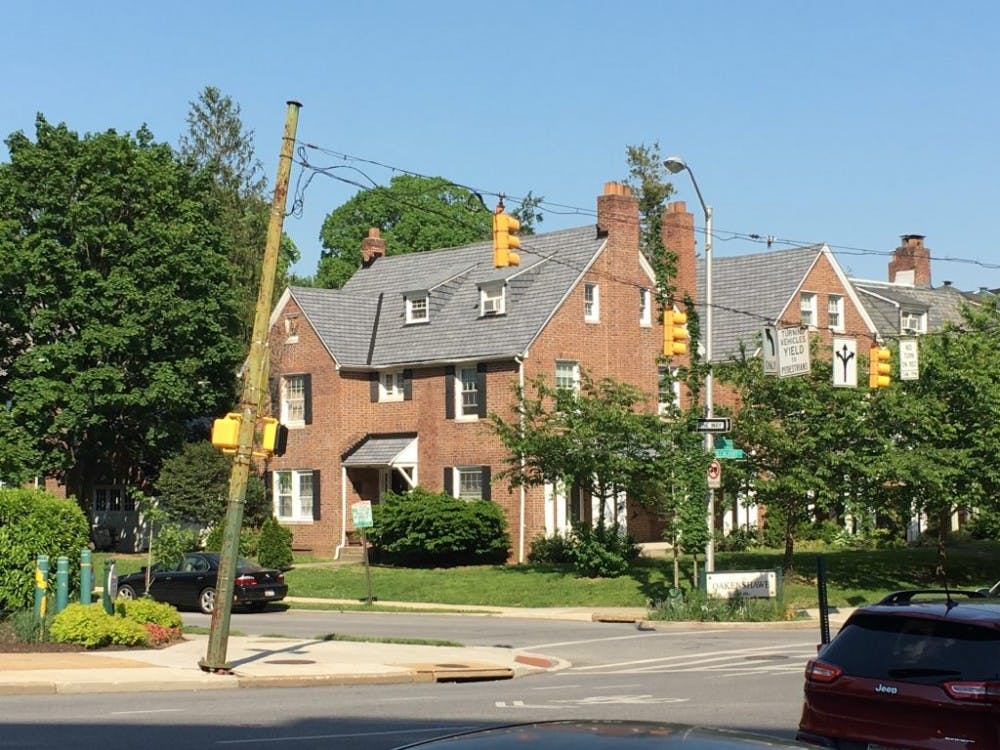Four Hopkins undergraduates overdosed on an opioid substance at a party hosted by The Delta Phi Fraternity on May 7. Delta Phi, also known as St. Elmo Hall or “Elmo’s”, is not recognized by the University and has been suspended by its national chapter.
Emergency room personnel at MedStar Union Memorial Hospital successfully treated the four students with Narcan, a prescription medicine that blocks the effects of an opioid overdose. The four students have since been released from the hospital.
In a statement to The News-Letter, the Baltimore Police Department (BPD) wrote that they are conducting an investigation in collaboration with the University to identify the drug supplier. To combat opiate addiction in Baltimore, the BPD recently formed the Opioid Overdose Task Force to address incidents like the one at Elmo’s. This task force will lead the investigation.
“Parents send their children off to college and they are left to their own devices,” the BPD wrote in a statement. “However, there are drug dealers out there that prey on young people and exploit their vulnerabilities. We want those dealers to know that we are working backwards from overdoses, not to criminalize the person who overdoses, but to go after the person who is supplying the drugs to our community.”
Director of the Office of Fraternity and Sorority Life (FSL) Calvin Smith wrote in an email to The News-Letter that the University wants to cooperate with BPD to ensure the health and safety of students.
“The Office of FSL contacted Delta Phi’s national chapter to alert them of the situation,” Smith wrote. “Moving forward, we will be looking at enhanced education and training opportunities.”
Elmo’s national organization wrote in a statement that it is conducting an investigation with local authorities and the University administration.
“The Fraternity has temporarily suspended its Xi Chapter, also known as St. Elmo, at Johns Hopkins University, ordering it not to engage in any official activities or functions pending an investigation into these reports,” they wrote.
Elmo’s was established at Hopkins in 1885. According to Smith, the fraternity has not been recognized by the University since 1996. He added that a fraternity or sorority chapter must positively contribute to the Hopkins community in order to take advantage of the University’s benefits, which include liability insurance.
“Once there is a conclusion to the investigation by the national office to determine whether or not the local chapter is still recognized by their national organization, we would be willing to engage with the chapter leadership and alumni to discuss what a future re-recognition process would look like,” Smith wrote.
Smith added that any liability incurred as a result of activities hosted by unrecognized groups like Elmo’s are the responsibility of the affiliated individuals.
Junior Chris Wend, captain of the Hopkins Emergency Response Organization (HERO), said that while HERO was not called to respond to the incident at Elmo’s, the organization is equipped with Narcan and trained for similar situations.
He warned that opioid overdose can lead to hospitalization and death and that there are ways students can prevent it.
“The easiest thing is watching for the signs of overdose,” Wend said. “The big thing we worry about with opiates is respiratory depression, which is when you breathe slower and slower until you stop breathing.”
Wend hopes students will become more aware of the problem presented by opioid use on campus.
“People never thought [an overdose] was possible at Hopkins because there haven’t really been incidents of it,” he said. “But I’m sure it happens. I think it’s brought to light that this is actually going on behind the scenes, and if people are aware of it, they’ll be looking out for it more.”
He said that the University should make sure students are educated on both opioid and alcohol overdoses.
“Compared to alcohol overdose, opioid overdose is a much higher risk of death,” Wend said. “As long as people know the signs and call for help, it’s a very reversible thing.”
Caleb Alexander, co-director of the Johns Hopkins Center for Drug Safety and Effectiveness at the Bloomberg School of Public Health, emphasized the danger associated with the recreational use of opioids.
“This is a whole different ball game from marijuana or even alcohol,” Alexander said. “Prescription opioids and heroin are highly addictive and they are very easy to overdose on. For people that are using these recreationally to get high it’s like playing Russian roulette, and all too often people don’t learn until it’s too late.”
Alexander stressed that long-term care, rather than law enforcement action, is a more effective strategy to address opioid use.
“I don’t know the details of how the University may be cooperating with law enforcement,” he said. “But I’ll tell you that you can’t arrest your way out of the epidemic and arguments that suggest otherwise are mistaken.”
He explained that long-term treatment options are available to the more than two million Americans who suffer from an opioid use disorder.
According to Alexander, treatments that combine counseling and supplemental medicine such as methadone are available to patients who struggle with one of these disorders. He said that while sustained treatment often successfully helps patients, opioid addiction is a continuous struggle.
“These treatments work,” he said. “People return, they resume healthy, productive, satisfying lives as active participants of society, but opioid addiction is a chronic addiction.”
Director of the Office of FSL Calvin Smith wrote that the University provides resources for students who might be struggling with opioid use. Students can go to the Health and Wellness Center, the Center for Health Education Wellness or the Counseling Center, which employs a medical professional who specializes in treating substance abuse.
The Hopkins chapter of Elmo’s could not be reached for comment.
Morgan Ome, Sarah Y. Kim and Alyssa Wooden contributed to reporting.
Correction: The original article incorrectly reported Chris Wend saying "respiratory repression." The correct term is "respiratory depression."





